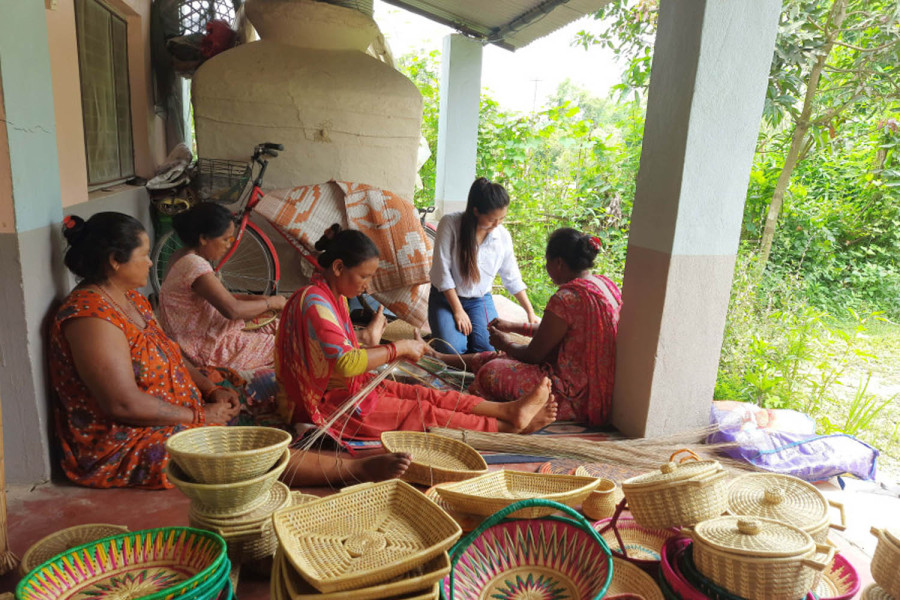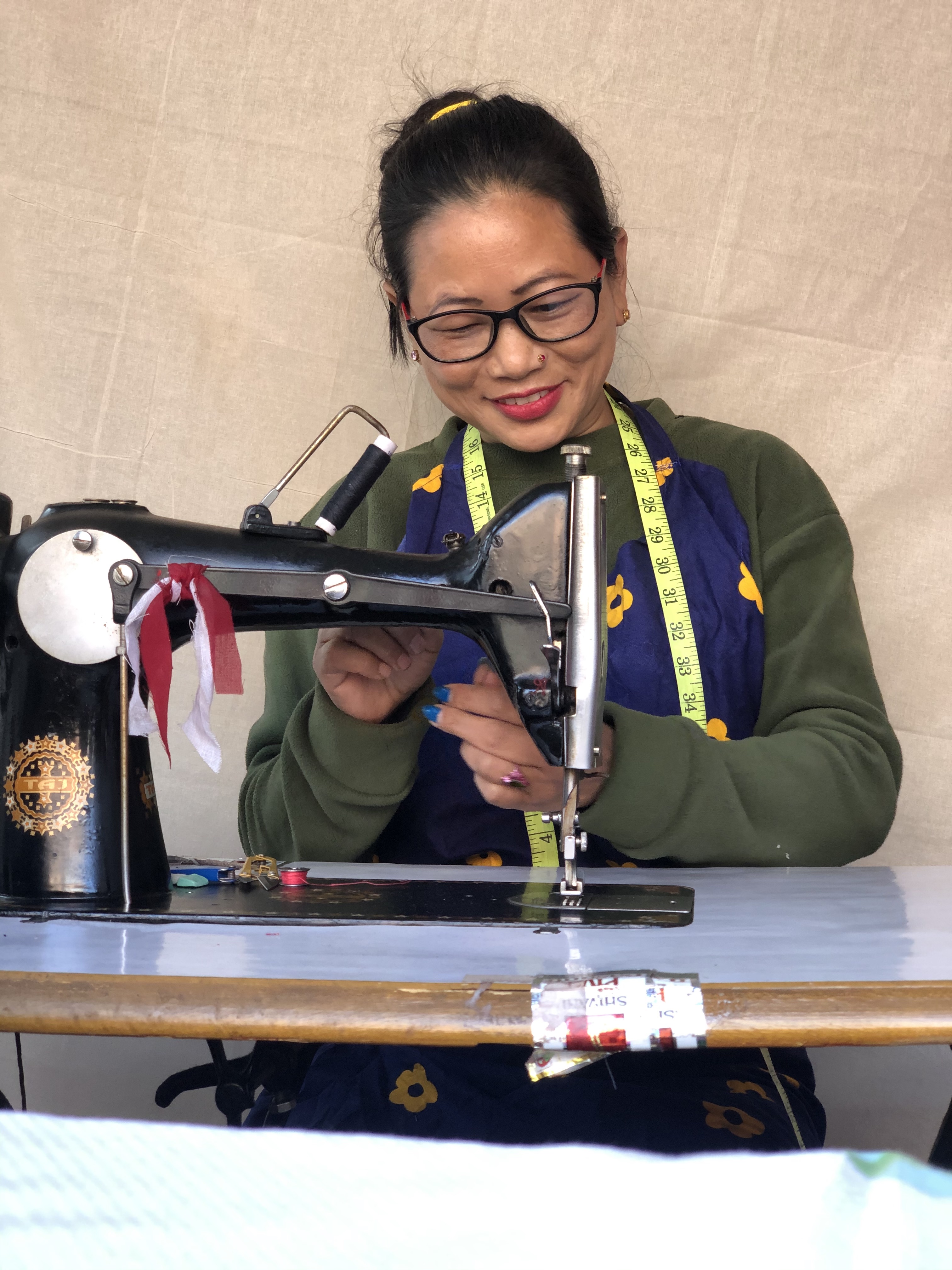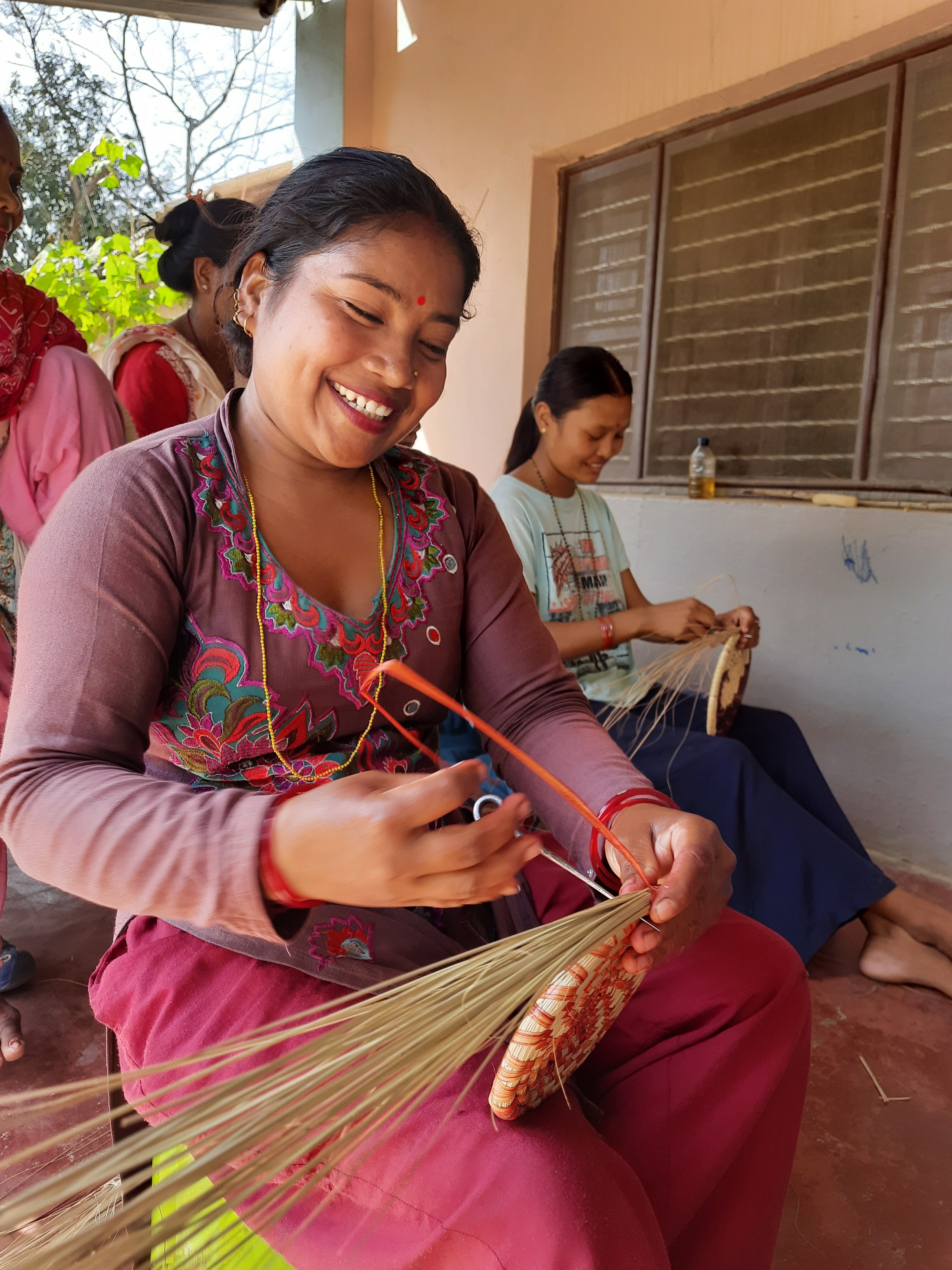Culture & Lifestyle
By the women, for the environment
Deego Nepal champions sustainability through eco-friendly products while empowering women.
Rukusha Giri
Deego Nepal advocates a sustainable lifestyle. Founded on March 8, 2019, by Rajani Gurung, Mahalaxmi Shrestha and Anjana Malla, the brand emerged from a collective vision to promote a healthy and eco-friendly environment. Departing from conventional practices, they consciously avoid plastics in their product design, aiming to positively impact the local ecosystem. Their focus is on innovatively integrating eco-friendly materials, with an emphasis on sustainability.
In a society where eco-friendly products are limited and hard to access, Deego Nepal addresses this gap by producing locally and utilising available resources. The team describes their mission as striving to balance social lives and environments, encapsulated in the essence of ‘Deego’, which simply means sustainability.
The three founders, who initially met while working for a national organisation, discovered a shared commitment to sustainable development. Malla, with a background in social work, felt compelled to shift from her previous role to contribute to environmental preservation. She emphasises the urgent need to safeguard the country’s environment for future generations, given its ongoing deterioration.
Before the onset of the Covid pandemic, Deego Nepal successfully sold its products in physical stores, receiving positive customer feedback. However, adapting to the changing circumstances, the brand transitioned to an online presence after closing its physical store during the pandemic. Currently, the brand is dedicated to expanding its digital platform for a wider reach and continued sustainability efforts.
Gurung, who had studied social work at the bachelor’s level, was the first person Malla shared her idea of promoting sustainability with. Gurung agreed, and as they discussed the concept with others, Shrestha expressed interest in joining the initiative. Progressing gradually, they formed a team and began crafting handmade bamboo products, which they sold at local markets.
During a visit to her birthplace in Bardiya, Malla observed the local women creating various items from bamboo, such as baskets, mats, toothbrushes, paper, pens and more. Inspired by this, she envisioned bringing these eco-friendly goods to Kathmandu, aiming to raise awareness in the community.

“On seeing that the women in Bardiya had to travel a considerable distance to sell their products, I decided to purchase numerous items from them and transport them to Kathmandu, where I stocked them in Deego Nepal,” Malla explains. Every product from Bardiya sold out quickly at Deego, she says. Motivated by this success, they established a team in Kathmandu and continued selling their goods. Malla reached out to the women’s group in Bardiya that crafted bamboo products, citing their traditional practices within the Tharu community. This collaboration extended to online platforms, broadening the reach of their sustainable products.
“The women in Bardiya were grateful for us buying their goods as they previously had to spend the whole day selling them,” says Malla. The Deego team allocate a specific part of the order, and everyone collaborates to produce the goods.
The company then expanded to include Dang and Kapilvastu. These locations also source its products now. Given that a majority of its workforce comprises women, the focus is on empowering women who are well-versed in crafting these handmade items.
Their product range includes bags, body scrubbers, combs, straws, toothbrushes, baskets, copper bottles, and more—all eco-friendly. Notably, the body scrubbers are made from Luffa Guard, a product exclusively crafted in Nepal. Additionally, the team maintains connections with farmers, the only male contributors to their brand.
Deego Nepal is a sustainable brand that indirectly supports local products and women’s empowerment. They provide jobs to women, ensuring their livelihoods and contributing to the community.

The products are crafted by women in Bardiya, Dang and Kapilvastu. Once made, the goods are transferred to Kathmandu, as it has the necessary infrastructure. In the Tarai region, the majority of women belong to the Tharu community. In Kathmandu, female workers come from various cultures and backgrounds. Some are homemakers, and some are single mothers.
“We aim to avoid impacting future generations negatively. While we can’t completely eliminate the use of certain products, controlling their environmental impact is within our hands. Everyone should use products wisely,” says Malla.
Sustainability is more than just a passing trend; it’s a responsibility. People need to take the environment seriously and avoid direct use of plastic products. Achieving sustainable development involves economic growth, social equity, environmental protection and a long-term perspective that considers the impact on future generations.
It’s crucial for everyone to prioritise environmental concerns, given the daily degradation of the environment. Deego Nepal represents a significant step towards sustainability, urging everyone to contribute to resource preservation and reduce plastic usage. The brand serves as an inspiration, particularly for women, positioning them as environmental superheroes. Women empowerment not only benefits individual women but also contributes to a more just and prosperous world with greater gender equality, says Malla.




 14.12°C Kathmandu
14.12°C Kathmandu















